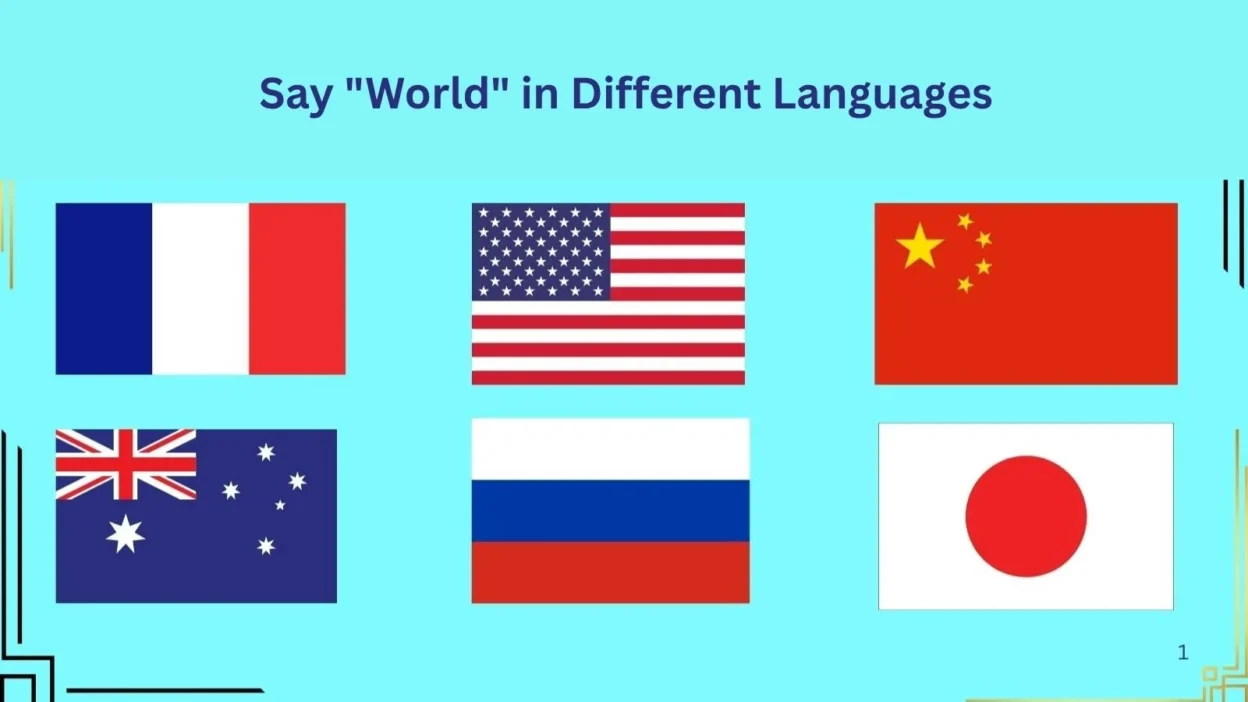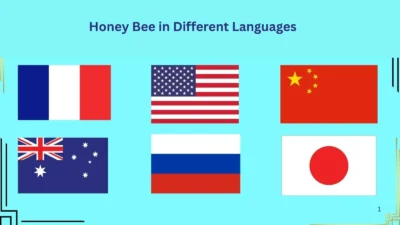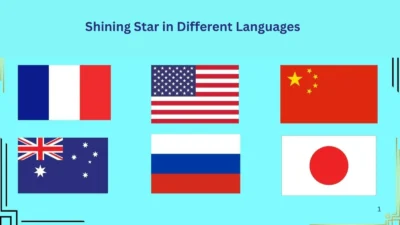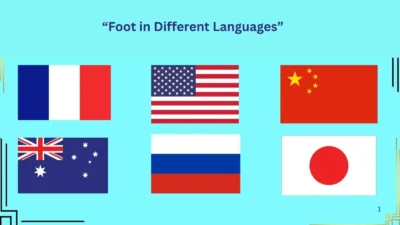Why You’re Searching for This Word
Have you ever paused mid-conversation or while writing a post and wondered — “How do I say ‘world’ in another language?”
Whether you’re a language lover, a traveler, a writer, or someone trying to connect more deeply with people from different cultures, this curiosity makes perfect sense.
Maybe you’re crafting a quote, a tattoo, a greeting, or learning phrases for your next trip abroad. Perhaps you’re working on a global project and want to add an international flavor.
Whatever the reason, you’re searching for how to say “world” in different languages to expand your expression and understanding.
And you’ve come to the right place.
In this article, we’ll help you:
- Understand what the word “world” really means in context.
- Learn how it’s said in over 100 languages.
- Discover examples of how to use it in everyday phrases.
🌐 What Does “World” Mean?
The word “world” usually refers to:
- The planet Earth.
- All human civilization.
- A particular sphere of activity or thought (e.g., the sports world, the fashion world).
It is both literal (the physical Earth) and symbolic (a community, domain, or idea). That’s why understanding and translating this word correctly across languages is powerful — it helps you connect with people, culture, and context.
🗣️ How to Use the Word “World” in Sentences
Here are some simple English sentences using the word “world” — later, we’ll show how this word translates:
- I want to travel the world.
- The world is changing fast.
- She’s famous all over the world.
- Welcome to my world!
- Let’s make the world a better place.
Each of these uses reflects either the physical Earth, people across cultures, or an emotional or metaphorical meaning.
🌎 How to Say “World” in 100+ Languages
Here’s a multilingual list showing how the word “world” is translated around the globe:
| Language | Word for “World” |
| Spanish | Mundo |
| French | Monde |
| German | Welt |
| Italian | Mondo |
| Portuguese | Mundo |
| Russian | Мир (Mir) |
| Chinese (Mandarin) | 世界 (Shìjiè) |
| Japanese | 世界 (Sekai) |
| Korean | 세계 (Segye) |
| Arabic | العالم (Al-‘ālam) |
| Hindi | दुनिया (Duniyā) |
| Urdu | دنیا (Dunya) |
| Turkish | Dünya |
| Greek | Κόσμος (Kósmos) |
| Hebrew | עולם (Olam) |
| Swahili | Dunia |
| Indonesian | Dunia |
| Malay | Dunia |
| Thai | โลก (Lók) |
| Vietnamese | Thế giới |
| Bengali | বিশ্ব (Bishwo) |
| Tamil | உலகம் (Ulagam) |
| Telugu | ప్రపంచం (Prapanchaṁ) |
| Polish | Świat |
| Dutch | Wereld |
| Finnish | Maailma |
| Swedish | Värld |
| Danish | Verden |
| Norwegian | Verden |
| Czech | Svět |
| Hungarian | Világ |
| Romanian | Lume |
| Ukrainian | Світ (Svit) |
| Persian (Farsi) | جهان (Jahān) |
| Latin | Mundus |
(You can request the full list of 100+ languages if you’d like a downloadable table.)
How to Use “World” Correctly in Conversation
The translated word for “world” will often appear in:
- News headlines: “World Leaders Meet for Climate Talks”
- Inspirational quotes: “Be the change you want to see in the world.”
- Social media posts: “Good morning, world!”
When using it in another language, always double-check the context. For example, “Mir” in Russian also means “peace,” so surrounding words matter.
Why Knowing “World” in Many Languages Matters
Learning how to say the word “world” in different languages isn’t just a vocabulary exercise — it’s a bridge to global connection. It reflects your openness to diversity and your curiosity about how others speak, live, and think.
Whether you’re studying, writing, designing, or simply exploring — now you know how to express “world” across cultures and continents.



